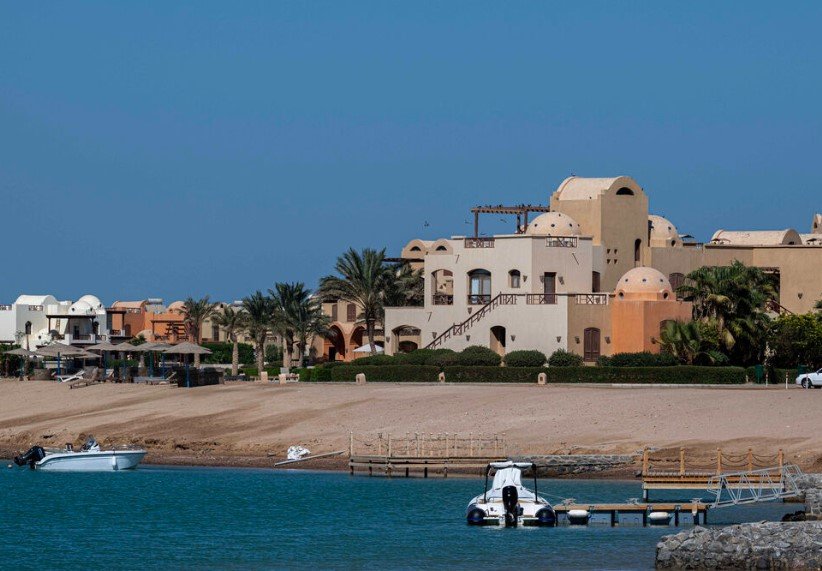Cairo is hustling to bring American money into its economy, offering ports, factories, and reforms to sweeten the deal.
Prime Minister Mostafa Madbouly has given his cabinet marching orders: roll out the welcome mat for U.S. companies. Egypt wants American investors to know it’s open for business—and serious about fixing the mess left behind by a brutal financial crisis.
In a meeting with senior ministers this week, the Egyptian government said it’s prepping a “package” of investment opportunities tailored for U.S. firms. These include industrial zones, logistics, ports—you name it. The goal? Revive a battered economy and hit ambitious Vision 2030 benchmarks. But will U.S. corporations bite?
Cairo’s Gamble on Washington’s Wallet
This isn’t just another policy memo from Cairo. It’s a calculated move with high stakes.
The State Information Service confirmed that Madbouly called on his cabinet to make U.S. investors a priority. He also said bureaucratic roadblocks should be removed “without delay.” That’s an unusual level of urgency from Egypt’s typically slow-moving bureaucracy.
For Washington, this could be a chance to deepen ties with an ally whose stability matters to the entire Middle East. For Egypt, it’s a lifeline.
One sentence here.
Egypt’s pitch comes after years of economic turbulence that wiped out currency value, strained food supply chains, and forced reliance on IMF bailouts.
What’s On Offer to U.S. Firms?
The government hasn’t released a full breakdown yet, but officials gave a sneak peek at what American companies can expect to see.
Minister of Transport Kamel Al-Wazir outlined areas where U.S. capital could flow:
-
Upgrades to Red Sea ports and shipping lanes
-
New industrial clusters near the Suez Canal
-
Joint ventures in logistics, renewable energy, and agribusiness
-
Digital infrastructure and fintech corridors
-
Manufacturing hubs for medical, tech, and auto sectors
The government also hinted at preferential tax treatment and streamlined approvals for U.S.-backed projects.
Egypt’s pitch will likely be bundled with Vision 2030 deliverables to give it more political weight.

Vision 2030: Lofty Goals, But Time’s Ticking
Egypt’s Vision 2030 sounds great on paper. The country wants to hit 8% GDP growth, slash emissions by 10%, and rebrand itself as a “green industrial hub.”
But talk to economists, and you’ll hear concern. A lot of the progress has been delayed. The pandemic, inflation, and debt crises pushed many reforms off course.
One sentence here.
FDI fell sharply in 2023 and 2024, scaring off companies worried about repatriating profits and navigating Egypt’s dual exchange rate issues.
Let’s take a quick look at where things stand:
| Metric | Vision 2030 Goal | Current Status (2025) |
|---|---|---|
| GDP Growth | 8% | 3.9% |
| FDI Inflow | $20B/year | $10.3B |
| Emissions Cut | -10% | +2% since 2020 |
| Global Competitiveness Rank | Top 50 | Ranked 92nd |
The government believes U.S. investment can be the engine that finally gets the plan back on track.
Why the U.S. Might Actually Say Yes
Egypt is betting that its location—and growing consumer base—can lure in American dollars.
With over 110 million people and proximity to Europe, Asia, and Africa, Egypt is uniquely placed. Add in the Suez Canal, and you’ve got a logistics jackpot.
Plus, the U.S. is already showing signs of interest. Earlier this year, a delegation of American energy firms toured Cairo and Alexandria. ExxonMobil, Microsoft, and General Electric have all expanded their Egypt footprint over the past 12 months.
Still, there’s skepticism.
One sentence here.
“Without judicial reforms and currency flexibility, Egypt’s market won’t hit full potential,” said a regional risk analyst at Capital Economics.
Will Bureaucracy Kill the Buzz?
Even if the pitch is solid, execution remains a huge question mark.
American firms have long complained about slow licensing, unclear regulations, and interference from state-linked companies. The military still plays a major role in Egypt’s economy, which creates uncertainty for foreign partners.
The government says it’s fixing that. But history hasn’t been kind to such promises.
In 2022, Egypt rolled out a “golden license” scheme to speed up investment approvals. Only a few firms have actually gotten one so far. Most say the process is still full of delays.
One short sentence here.
Madbouly insists this time will be different. That’s yet to be proven.
What’s Next: Timing, Trust, and Trade Shows
The Egyptian government is expected to formally present its investment portfolio at upcoming U.S.-Egypt trade events this fall.
That includes the SelectUSA Investment Summit in Washington, and a joint Cairo Investment Expo hosted with the American Chamber of Commerce in Egypt.
Officials are hoping these events will showcase real projects with real ROI—and not just brochures.
If they can match ambition with implementation, the U.S. might finally lean in. If not, Vision 2030 could turn into another dusty slogan buried in bureaucratic archives.
